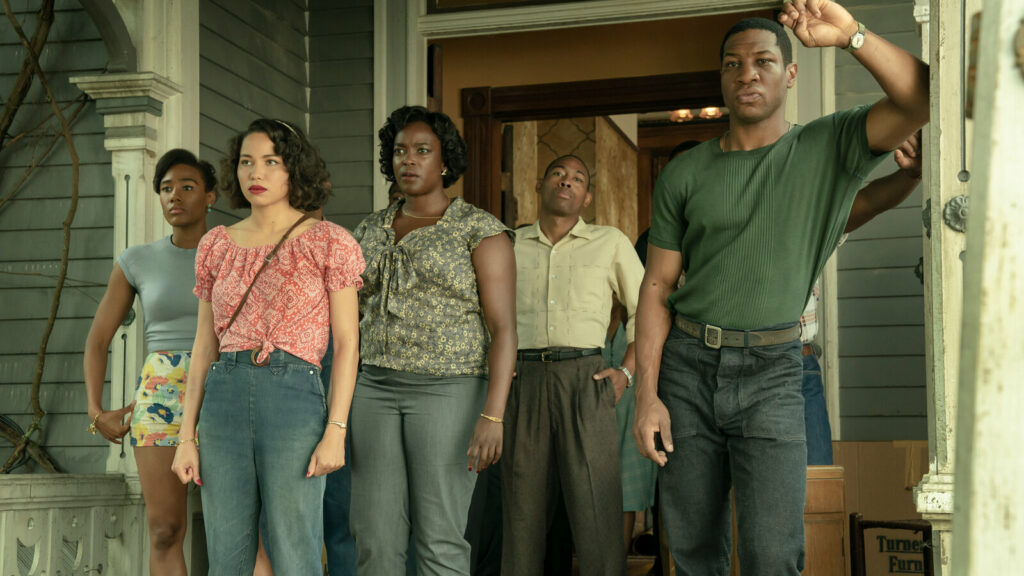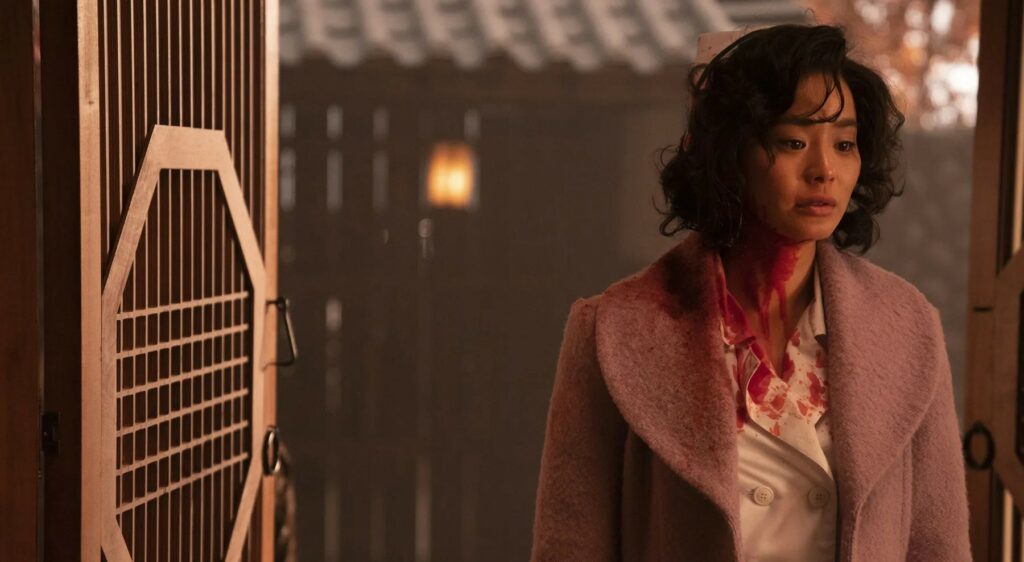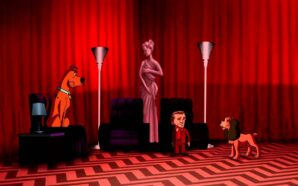Lovecraft Country is the kind of show I usually love. The kind of show I usually champion. A weird genre show, featuring subversive sci-fi and pulp horror, somehow getting produced by HBO. But I didn’t love it. There are great ideas, some good episodes across its 10-episode run, but it’s a mess of a season. A unique mess, I’ll give it that. I’ve never encountered a TV series brought down by the same issue. Lovecraft Country works best as an anthology series and is ruined by the desire to thread everything together through an incredibly dull serialised narrative.
I enjoyed the first episode, with it setting up the characters, setting, and themes the season would deal with. It begins very much like a regular serialised season of television, a HBO drama about race, focusing on a group of black characters in 1950s America, before throwing in an insane genre twist. I even liked the second episode. It was a further shift, a sudden change in direction, featuring magic, like a weird pulpy show suddenly had infected a HBO drama.
At this point I thought I had Lovecraft Country figured out. I liked how the first two episodes felt totally different, an anthology show that continuously led into unique stories exploring race using genre storytelling, the same characters taking us through the whole journey. As much as Lovecraft Country wants to be that show, it isn’t.
I liked the standalone feel of the second episode but it wasn’t standalone. The second episode is more of a pilot for the rest of the season than the actual pilot. Those magical aspects I enjoyed for one episode aren’t just introduced for that one instalment and instead become the overarching serialised story of the season, getting in the way of everything else Lovecraft Country attempts.

Bloodlines and spells; magic books and lost pages. I could barely keep track of it all and even when I could I didn’t care. These aspects can work as basic Macguffins, things to push the plot along to more interesting destinations and ideas, but the rest of the season spends so long detailing all these things. What should be merely connective tissue becomes the dominant plot of each episode, while the more anthological ideas of merit are treated as strange asides always in service of the greater, interminable narrative.
Lovecraft Country could have been a great anthology show, produced by Jordan Peele, a better Twilight Zone than his actual Twilight Zone reboot, but it puts its focus in the wrong place. Any episode I did enjoy I did so in spite of these serialised elements rather than because of them. The following three episodes all want to embrace different genres, from a haunted house horror, an Indiana Jones-style adventure, and a body-swap drama, but while they all have their moments and unique flourishes, every other scene is the same characters discussing obtaining lost spells from some missing pages from a magic book.
The season’s crowning glory is its sixth episode Meet Me in Daegu. It’s as close to a complete anthology episode the show offers, focusing on side character Ji-Ah during the Korean War. It’s a great story and a wonderful character study. Ji-Ah is possessed by a kumiho, a nine-tailed fox spirit, and must kill 100 men during sex to become human again. The episode uses this supernatural twist to explore ideas of sex, gender, race, and war. Add another 30 minutes and the episode could be a great film, nothing to do with the wider series. What brings the episode crashing down is its ending, or rather lack of one. Ji-Ah suddenly becomes focused on series protagonist Atticus and her character is shoved aside in the closing minutes of her own episode to focus on the wider plot. The end of Ji-Ah’s arc is delayed until the series finale and ends up being some absolute nonsensical moment of using her spirit tails to link two characters in a contrived dénouement even the worst superhero movie would be embarrassed by.
The episode I Am suffers a similar fate. The episode is all about the overlooked Hippolyta on a personal journey through space, time, and dimensions to find her true self worth and transcend into a new state of being. Yet the character the show is making the point about being overlooked and underserved in life is treated as such in her own episode. This transcendent journey, introducing Afrofuturism to the anthological mix, is squished into half an episode when it should be the whole thing. The first half is yet more scenes debating spells and the locations of magical objects. 30 minutes can be enough time to tell such a story, just look at how creative and streamlined each episode of Inside No 9 is, but Lovecraft Country doesn’t operate on the same level.

Jig-a-Bobo is actually a strong episode and offers the best combination of ongoing plot and specific theme and idea. The spell being sought is invulnerability and the episode is set in the wake of Emmett Till’s horrific murder, so it all fits rather cleverly with the idea of black characters seeking protection during that moment in history. It’s the only episode that manages this balancing act. The next episode, Rewind 1921, fails in this regard. Three characters travel back in time to the Tulsa race Massacre – Lovecraft Country being the second HBO show in a year to detail the event after Watchmen – and while two of them embark on a classic time travel narrative of closing a loop in a profound way, the other unrelatedly continues the serialised story by, yep, you guessed it, tracking down a missing magic book.
The season, and series considering the show was unsurprisingly cancelled, concludes with its weakest episode, Full Circle. The serialised plot obtrusively woven throughout each episode is given a full hour to itself and it turns out to be even less interesting than I thought possible; the show ending on the sourest of notes.
While I do wish Lovecraft Country embraced being an anthology show, the format it did choose can still be conducive to good storytelling. The Leftovers, one of my favourite shows, increasingly had novelistic episodes, focusing on different characters, feeling like unique hours of television, while still coming together to tell a complete narrative. It’s just that that ongoing serialised story has to be just as engaging as each individual piece. Lovecraft Country’s serialised plot and characters could sustain the first two episodes but soon suffocated the rest of the season, any great ideas not being able to break free from its tentacled grip.








